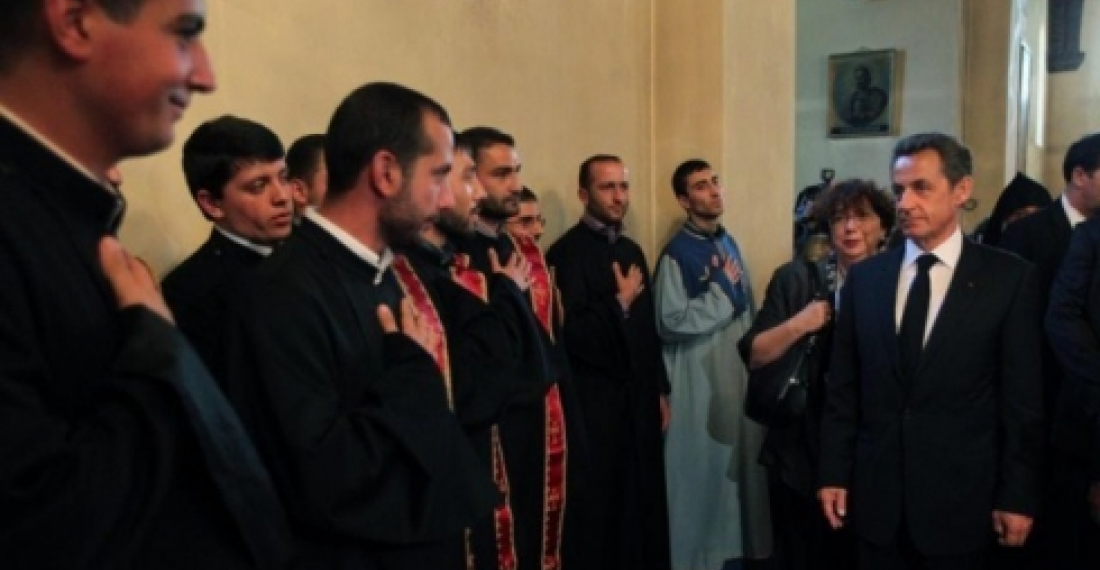The French President Nikolas Sarkozy on Thursday arrived in Armenia at the start of a trip to the three South Caucasus countries.
He was receivced at Yerevan airport by the Armenian President Serzh Sargsyan and other dignitaries.
The French leader later visited the Holy centre of Echmiazin and met the Catholicos of All Armenia Karekin II. He also visited the Genocide Memorial and Museum.
At a press conference with the Armenian President the French leader urged President Sargsyan "to continue on the path to peace" in the search for a solution to the Nagorno-Karabakh conflict. On his part the Armenian President said that France had always held an "impartial and balanced position" on the conflict, and he thanked France for its contribution to the settlement of the conflict.
The French President has now left Yerevan for Baku where he will meet President Ilham Aliev. He will later visit Tbilisi before returning to Paris this evening.
source: commonspace.eu newsroom
photo: The French President with Armenian clergy at Holy Echmiazin (picture courtesy of the French presidency)







